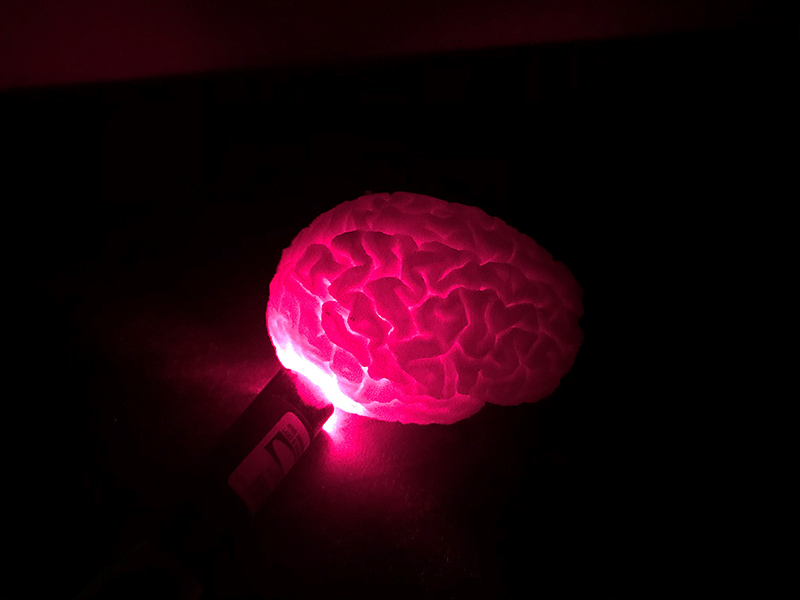July 13, 2020
The Medical Scientist Training Program (MSTP) offers fellowships and full-tuition scholarships to physician-engineer trainees in the IUSM-Purdue University MD-PhD BME combined degree program. One of PIIN’s goals is to increase the number of MSTP trainees pursuing their degree in PIIN laboratories. Not only would such an outcome strengthen the Institute’s research programs by engaging an outstanding pool of MD/Ph.D. students, but it would also foster the development of collaborations between PIIN faculty members and colleagues at IUSM.
Read More about "PIIN provides support for the Medical Scientist Training Program (MSTP)"

July 8, 2020
Georgia Malandraki, associate professor of speech, language, and hearing sciences at Purdue University, is uncovering the relationship between the brain and swallowing to develop treatments for children and adults who have difficulty swallowing. This condition, also known as dysphagia, affects 10 million adults and more than a half million children in the United States every year.
Not just a reflex: Swallowing is complicated, but this researcher is making it easier - Georgia Malandraki- Associate Professor of Speech, Language, and Hearing Sciences
June 18, 2020
Intelligent technologies have begun to affect nearly every corner of our lives. At the same time, people 65 years and older have become the fastest-growing age group worldwide. While there are many benefits of a future enabled by smart tools, older adults have typically been left out of the product design conversation, which has not taken into account their capabilities, limitations, expectations, and usability issues.
Connecting older adults with smart tech — by design, by Brandon J. Pitts- Assistant Professor, Industrial Engineering.
June 1, 2020
HIV stands for human immunodeficiency virus – a virus that makes your immune system weak so that it cannot fight off infection. It’s not easy to detect HIV in the first few weeks after infection, but it’s actually very important so the person can begin treatment and prevent transmission to another person.
Can we detect HIV quickly and accurately from a drop of blood? - Jacqueline Linnes- Marta E Gross Assistant Professor of Biomedical Engineering

May 4, 2020
Since Robert Hooke’s first description of a cell in Micrographia 350 years ago, microscopy has played an important role in understanding the rules of life. However, the smallest resolvable feature, the resolution, is restricted by the wave nature of light. Now, Purdue University researchers have developed a new technology to overcome this challenge.
New Imaging Technology Allows Visualization of Nanoscale Structures Inside Whole Cells and Tissues

April 21, 2020
A study conducted by Purdue University and Stanford University researchers found that offensive linemen experienced at least 40% fewer hits to the head if they started a play standing up, rather than with their fingers touching the ground. The slight positional change could eliminate a significant number of hits without affecting the game.
Study: Football Offensive Linemen Should Start Plays Upright to Avoid Hits to the Head
April 16, 2020
Cerebral chemical stability, which underlies normal human thinking, learning, and behavior, is strictly regulated by brain barrier systems that separate the blood circulation from brain extracellular fluids. The blood-brain barrier (BBB), whose structural basis is capillary endothelial cells sealed by tight junctions, disconnects the blood from cerebral interstitial fluid.
Brain Barrier Systems Play No Small Roles in Toxicant-induced Brain Disorders

April 9, 2020
Purdue University researchers created technology that uses optical imaging to better help surgeons map out tumors in the body and help them understand how certain diseases affect activity in the brain.
Optical Imaging Technology May Help Surgeons Better Treat Cancer, Brain Diseases
April 8, 2020
Learn more about the research of Tamara Kinzer-Ursem, Marta E. Gross Associate Professor in the Weldon School of Biomedical Engineering, in the areas of biomolecular detection, protein-structure function and relationships, spatial and temporal dynamics of protein signaling networks in this “Celebrating our Associate Professors” video series.
Tamara Kinzer-Ursem is Featured in "Celebrating our Associate Professors" Series

April 2, 2020
Our two teams of engineers are hard at work quickly and collegially developing portable, user-friendly technologies that would tell people — in their own homes — whether they’ve contracted the novel coronavirus.